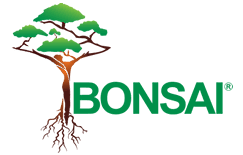My views on Gallup Strengths Finder have recently changed after an intensive certification training and extensive use with clients. The statements below are heard widely in the coaching world, and I used to believe some of these myths, too!
1) All you need are your Top 5 Strengths. I had heard (and even used to say) that knowing your top 5 is sufficient; otherwise, you might dwell on the lowest ones. Now, I whole-heartedly disagree. Why?
- Daily, we use our top 10 strengths, so knowing 5 means you only have half of the information. That’s like only knowing what’s in the top half of your toolbox. What’s more, you have super-powers based on some strengths in your top 5 and some in the next 5. I don’t know about you, but I want all my superpowers at my disposal!
- It is empowering to know your lowest talent themes so you no longer waste time beating yourself up or trying to improve behaviors that aren’t natural for you to perform.
- If you intentionally use your strength super-powers (which I teach clients how to do), you should increase your productivity an average of 8%. That’s about 4 extra hours of time per week, every week, which is worth much more than the additional cost. This is an investment, not just a fun or interesting thing to do (although it is that, too).
2) Only focus on strengths, not weaknesses. The key word is “only.” Yes, we do want to primarily focus on our top 10 strengths in terms of investing in and priming these strengths. The reason for this is it is proven that you don’t get much return for time spent trying to improve your lower talent themes. However, being aware of one’s constraints is vital and we can develop strategies based on your top 10 talent themes to overcome what you weren’t designed to naturally do.
3) Labeling people with strengths is bad. Actually, I agree with this one. You do want to be able to identify different talent themes being exhibited by some (so we might better understand their actions as something they must do vs. them trying to annoy us). However, labels are limiting and understate the power strengths have when combined. One person in a retreat I led said she didn’t like being labeled Harmony, Futuristic, Focus, Positivity and Achiever. I asked her, “Does it feel better that I say you have an amazing gift of helping a group create and align to a vision and you keep them on track by taking steps toward milestones along the way, celebrating each small victory to maintain momentum?” She lit up with excitement and said, “That is me!” You should be able to articulate your superpowers without using any strengths labels and I encourage you to try it!
Check out my blog on networking for problem solvers for a strengths application example.





 Britta burrus design.
Britta burrus design.